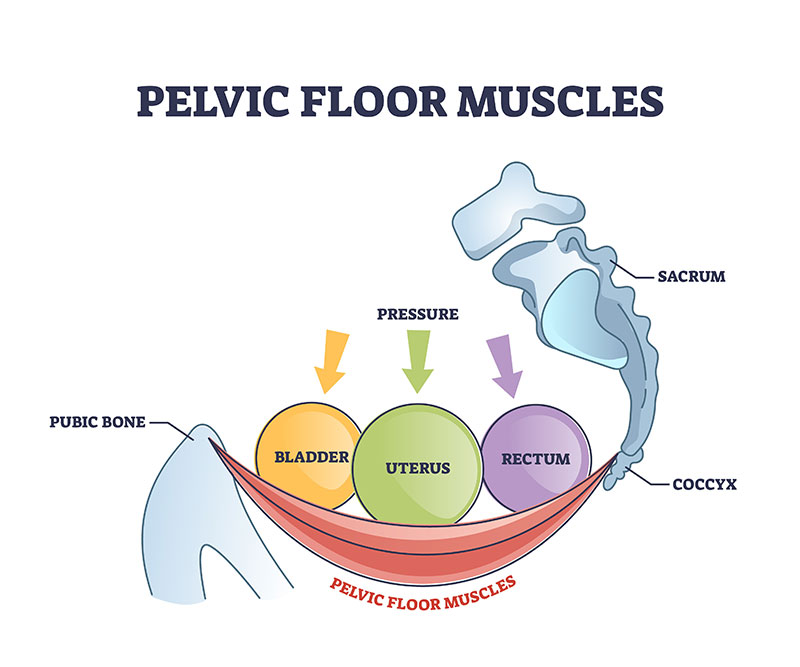Pelvic Organ Prolapse is a condition that affects many women, especially those who have given birth. Understanding the risk factors and knowing treatment options can help you take proactive steps to prevent or manage this condition effectively.
Key Risk Factors for Pelvic Organ Prolapse:
Childbirth: Vaginal deliveries, particularly multiple or complicated births, can weaken the pelvic floor muscles, making them less capable of supporting the pelvic organs. Ensuring a strong pelvic floor pre- and post-pregnancy can mitigate this risk.
Aging: As we age, our muscles lose tone and elasticity, including the pelvic floor muscles. This natural process can increase the likelihood of prolapse, but regular pelvic floor exercises can help maintain muscle strength and function.
Genetics: A family history of prolapse can indicate a predisposition to this condition. Knowing your family medical history allows you to take preventive measures early, such as targeted physical therapy and regular pelvic floor strengthening exercises.
Obesity: Excess weight puts additional pressure on the pelvic floor, increasing the risk of prolapse. Maintaining a healthy weight through a balanced diet and regular exercise can significantly reduce this pressure and the associated risk.
Chronic Straining: Conditions like constipation or chronic coughing can cause repeated straining, which weakens the pelvic floor over time. Managing these conditions and practicing proper lifting techniques can prevent undue stress on the pelvic muscles.
How We Can Help:
- Personalized Evaluations: Our expert physical therapist, Kate, conducts a thorough assessment of your specific condition and develops a tailored plan to address it.
- Preventive Strategies: Implementing lifestyle changes and exercises specifically designed to strengthen your pelvic floor, reducing the risk of prolapse and improving overall pelvic health.
- Lifestyle Modifications: Simple changes in your daily routine can make a significant difference in managing prolapse. Maintaining a healthy weight reduces pressure on the pelvic floor, while avoiding heavy lifting prevents additional strain. Our expert will guide you through practical lifestyle adjustments to enhance your pelvic health.
- Expert Support: Receive continuous guidance and support from our experienced PT, ensuring you stay on track with your preventive strategies and achieve the best possible outcomes.
Benefits of Our Approach:
- Early Intervention: Identify and address risk factors before they develop into more serious conditions.
- Holistic Care: A combination of lifestyle advice, exercises, and physical therapy ensures a well-rounded approach to pelvic health.
- Empowerment: Gain control over your health with knowledge and strategies that you can implement daily.
By addressing these risk factors proactively, you can significantly reduce your chances of developing pelvic organ prolapse or correct small prolapse issues. Highland Physical Therapy offers comprehensive assessments and personalized treatment plans tailored to your unique needs.
Advanced Organ Prolapse: Should you need surgery, we can help you rehabilitate your pelvic floor and core muscles. Often after surgery, pelvic floor muscles can lose strength, coordination and flexibility. We can help you regain those losses to allow you to return to activities that you love!
Take proactive steps today. Contact us at 208-237-2080 to schedule an assessment and learn how we can help you maintain a healthy pelvic floor.


